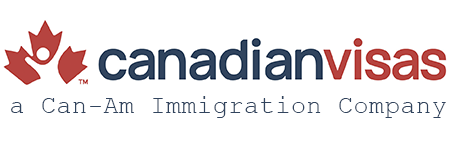Provincial Nominee Programs (PNPs) offer a compelling pathway to permanent residency for skilled workers, entrepreneurs, and individuals with strong ties to a specific province or territory. Launched in 1999, PNPs empower provinces and territories to address their unique labor market needs and economic development goals by selecting immigrants who are a perfect fit.
Understanding the PNP Landscape
PNPs operate independently from the federal Express Entry system, offering a valuable alternative for those who may not meet Express Entry’s criteria. Each province and territory designs its own PNP with a distinct set of eligibility requirements, application processes, and immigration streams. This diversity allows you to tailor your immigration journey based on your skills, experience, and aspirations.
A Spectrum of Streams
PNPs cater to a wide range of applicants through diverse immigration streams. Here are some of the most common:
- Skilled Worker Streams: Ideal for individuals with in-demand skills and work experience aligning with provincial labor market needs. These streams may target specific occupations, educational backgrounds, or language proficiency.
- Business Immigration Streams: Attract entrepreneurs, investors, and business owners who can contribute to the province’s economic growth. These streams often require business ownership or investment plans, accompanied by job creation potential.
- Family Sponsorship Streams: Allow Canadian citizens and permanent residents to sponsor close relatives for permanent residency. Some PNPs offer expedited processing times or lower eligibility requirements for family members.
- Graduate Streams: Designed to attract and retain international graduates with valuable skills and Canadian educational credentials. These streams may offer bonus points for those who studied in the province.
- Atlantic Immigration Pilot: A unique federal-provincial collaboration offering permanent residency to skilled workers and international graduates seeking to live and work in Atlantic Canada (Nova Scotia, New Brunswick, Prince Edward Island, and Newfoundland and Labrador).
Benefits Beyond Processing Speed
While faster processing times compared to traditional immigration streams are a significant advantage, PNPs offer additional benefits:
- Increased Success Rates: PNPs can provide an alternative pathway for those who may struggle to meet the competitive point requirements of Express Entry.
- Provincial Support: Many PNPs offer settlement services to help nominees integrate smoothly into their new communities. This includes language training, job search assistance, and information on housing, healthcare, and education.
- Targeted Opportunities: Aligning your skills and experience with a specific province’s needs can lead to better job prospects and a smoother transition into the Canadian workforce.
Determining Your Eligibility
Eligibility for PNPs varies greatly, but common factors include:
- Age: Most PNPs target working-age individuals.
- Education: Specific educational qualifications or Canadian educational credentials may be required.
- Work experience: Relevant work experience in skilled trades or professions is often sought after.
- Language proficiency: English or French language skills are typically required, with varying proficiency levels depending on the stream.
- Connection to the province: Some PNPs prioritize applicants with existing ties to the province, such as previous work experience or family connections.
Navigating the Application Process
The application process for PNPs can be complex and vary depending on the province or territory. Here’s a general roadmap:
- Research and Identify: Explore the PNPs of your preferred provinces and assess your eligibility based on their specific requirements.
- Create an Online Profile: Some PNPs require an online profile where you can submit an Expression of Interest (EOI) outlining your skills and experience.
- Receive an Invitation to Apply (ITA): If your profile aligns well with a program’s needs, you may receive an ITA to submit a formal application for a provincial nomination.
- Application and Supporting Documents: Complete the application form and gather all required documents, such as proof of education, work experience, language proficiency, and financial resources.
- Provincial Nomination: Upon successful application review, you will receive a provincial nomination certificate.
- Permanent Residency Application: Use your nomination certificate to apply for permanent residency through Express Entry (if applicable) or directly with IRCC.
Popular PNP Options
Several PNPs consistently rank high for their efficiency and diverse streams. Here are some of the most popular:
- Alberta Immigrant Nominee Program (AINP): Offers skilled worker, entrepreneur, and graduate streams.
- British Columbia Provincial Nominee Program (BC PNP): Features skilled worker, entrepreneur, and international graduate streams.
- Ontario Immigrant Nominee Program (OINP): Caters to a wide range of applicants through various streams, including skilled workers, entrepreneurs, and French-speaking skilled workers.
- Saskatchewan Immigrant Nominee Program (SINP): Focuses on attracting skilled workers in occupations facing labor shortages.
-
Manitoba Provincial Nominee Program (MPNP): This program boasts a streamlined process and diverse streams, including skilled workers, entrepreneurs, and business manager categories. The MPNP is known for its focus on attracting newcomers to settle outside of Winnipeg, the provincial capital.
-
Quebec Experience Class (PEQ): Operates independently of the federal Express Entry system and caters to skilled workers, students, and business people with experience in Quebec. French language proficiency is a mandatory requirement for the PEQ.
-
Nova Scotia Nominee Program (NSNP): Offers a variety of immigration streams, including skilled worker, entrepreneur, and Atlantic Immigration Pilot options. The NSNP is particularly attractive for those seeking a welcoming and affordable Atlantic Canadian lifestyle.
-
Prince Edward Island Provincial Nominee Program (PEI PNP): This program prioritizes attracting skilled workers and entrepreneurs with genuine interest in settling and contributing to Prince Edward Island’s economy. The PEI PNP is known for its efficient processing times and focus on smaller communities.
-
Newfoundland and Labrador Provincial Nominee Program (NL PNP): Designed to address the province’s labor market needs, the NL PNP offers skilled worker and employer sponsorship streams. This program is ideal for those seeking an opportunity in a beautiful and resource-rich province.
Maximizing Your PNP Success
Obtaining a provincial nomination can significantly increase your chances of securing permanent residency in Canada. Here are some strategies to enhance your PNP application:
- Target the Right Province: Research provincial labor market needs and align your skills and experience with the in-demand occupations listed by your preferred PNP.
- Boost Your Language Skills: Strong English or French language proficiency is crucial. Consider taking language tests and aiming for higher scores to improve your competitiveness.
- Highlight Your Canadian Ties: If you have any previous work experience or family connections in your target province, emphasize them in your application. This demonstrates your established ties to the community and commitment to settling there.
- Seek Professional Guidance: Immigration consultants can provide valuable assistance in navigating the complexities of PNP applications and tailoring your profile for success.
- Consider Additional Qualifications: Earning a Canadian educational credential or gaining relevant work experience in Canada can significantly strengthen your application.
Life After PNP
Receiving a provincial nomination is a significant step towards your Canadian dream. However, the journey doesn’t end there. Here are some additional considerations:
- Settlement Services: Many provinces offer settlement services to help newcomers integrate into their new communities. Take advantage of these resources to learn about Canadian culture, find employment, and adjust to your new life.
- Building Your Network: Networking with professionals in your field and joining community organizations can facilitate your job search and overall integration into Canadian society.
- Continuing Education: Consider pursuing further education or professional development opportunities to enhance your skills and qualifications, increasing your employability in the Canadian job market.
Conclusion
Provincial Nominee Programs offer a strategic pathway to Canadian permanent residency. By understanding the diverse PNP landscape, exploring your options, and preparing a compelling application, you can increase your chances of building a successful future in Canada. Start today and unlock the exciting possibilities that PNPs offer!






0 Comments